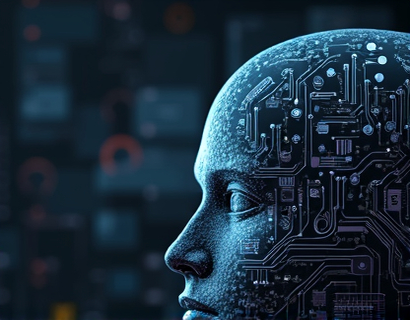Creating a Safe and Educational Environment for Children with AI Chat Technology
In the digital age, children and students have unprecedented access to information through various online platforms. However, ensuring that this access is both safe and educational remains a significant challenge. An AI-powered chat platform designed specifically for children and students can bridge this gap by providing a secure and enriching way to explore specialized knowledge and industry insights. This article delves into the features and benefits of such a platform, focusing on content verification, child-friendly interfaces, and the overall educational value it offers.
Understanding the Need for Safe AI Chat for Kids
The internet is a double-edged sword for young learners. On one hand, it offers a wealth of information and educational resources. On the other hand, it exposes children to potential risks such as inappropriate content, cyberbullying, and privacy concerns. An AI chat platform tailored for children addresses these issues by creating a controlled environment where the content is carefully curated and monitored. This ensures that young users can interact with the platform without fear of encountering harmful or misleading information.
Content Verification: A Cornerstone of Trust
One of the most critical features of an AI chat platform for children is content verification. This process involves rigorously checking all information provided by the AI to ensure accuracy, relevance, and appropriateness. Content verification can be achieved through a combination of human oversight and advanced algorithms that cross-reference information with trusted sources. By implementing this feature, the platform builds trust with parents, educators, and most importantly, the children using it. Knowing that the information is verified helps young users and their guardians feel confident in the platform's educational value.
Child-Friendly Interface: Designing for Young Minds
A child-friendly interface is essential for making the AI chat platform accessible and engaging for its young audience. The design should be intuitive, visually appealing, and easy to navigate. Using bright colors, simple language, and interactive elements such as images and animations can help capture the attention of children and make learning more enjoyable. Additionally, the interface should be scalable, allowing for different levels of complexity based on the user's age and knowledge level. This ensures that the platform remains useful and engaging as children grow and their understanding evolves.
Educational Value: Specialized Knowledge and Industry Insights
The primary goal of an AI chat platform for children is to provide educational value. This can be achieved by offering specialized information across various subjects and industries. The AI can be programmed to answer questions related to science, history, literature, and more, providing detailed explanations and additional resources where appropriate. For older students, the platform can delve into more complex topics and offer insights from specific industries, such as technology, healthcare, and environmental science. By doing so, the platform not only answers immediate questions but also inspires curiosity and a deeper understanding of the world.
Interactive Learning: Engaging Through Conversation
One of the most compelling aspects of an AI chat platform is its ability to engage children through conversation. Unlike traditional learning methods, an AI chat allows for a dynamic and interactive experience. Children can ask questions, receive immediate feedback, and even engage in simulated conversations that mimic real-world scenarios. This interactive approach not only makes learning more fun but also helps reinforce concepts through active participation. The AI can adapt to the child's learning pace, providing more detailed explanations or simpler ones as needed, ensuring that each user gets the most out of the platform.
Parental and Educational Controls: Ensuring Supervision
To further enhance the safety and educational value of the platform, it should include robust parental and educational controls. Parents and teachers can monitor the child's interactions, set usage limits, and review the content accessed. These controls can be customized to fit the specific needs and preferences of each household or educational institution. By involving adults in the learning process, the platform ensures that children are not only accessing educational content but also doing so in a supervised and guided manner.
Privacy and Security: Protecting Young Users
Privacy and security are paramount when it comes to platforms designed for children. The AI chat platform must adhere to strict data protection standards, ensuring that no personal information is collected or stored without explicit consent from parents or guardians. The platform should also use encryption to protect data in transit and at rest. Transparent privacy policies and clear terms of service help build trust with users and their guardians, reassuring them that their children's safety is a top priority.
Collaboration with Educators: Aligning with Curriculum Standards
To maximize the educational impact, the AI chat platform should collaborate with educators and curriculum experts. This collaboration ensures that the content aligns with educational standards and complements the learning objectives in schools. By integrating the platform into the educational curriculum, teachers can use it as a valuable tool to enhance classroom learning and provide additional support to students. This partnership also helps in gathering feedback and continuously improving the platform to better meet the needs of its young users.
Promoting Critical Thinking and Creativity
While providing accurate and verified information is crucial, an AI chat platform for children should also promote critical thinking and creativity. The AI can be designed to ask open-ended questions, encourage problem-solving, and foster creative thinking. By engaging in discussions and exploring different perspectives, children can develop essential cognitive skills that go beyond mere information retrieval. This approach not only makes the learning experience more enriching but also prepares children for the challenges of the future.
Case Studies and Success Stories
Several initiatives and platforms have successfully implemented AI chat technology to benefit children's education. For example, a pilot program in a few schools used an AI chatbot to assist students with homework and provide additional explanations on complex topics. The results showed significant improvements in students' understanding and retention of the material. Another example is an online learning platform that integrated an AI chat feature to help students practice languages. The interactive conversations led to faster progress and higher engagement compared to traditional language learning methods.
Challenges and Future Directions
Despite the numerous benefits, there are challenges to consider when developing an AI chat platform for children. One major challenge is ensuring that the AI remains unbiased and free from harmful content. Continuous monitoring and updating of the AI's knowledge base are necessary to address emerging issues and maintain the platform's integrity. Additionally, there is a need for more research on the long-term impact of AI chat on children's cognitive and social development. Future developments could include integrating emotional intelligence and social skills training into the platform, further enhancing its educational value.
Conclusion
An AI-powered chat platform designed for children and students offers a promising solution to the challenges of safe and educational online learning. By focusing on content verification, a child-friendly interface, and collaborative efforts with educators, such a platform can provide a reliable and enriching experience for young learners. As technology continues to evolve, the potential for AI to positively impact education is vast, making it an exciting area to watch and invest in.










































